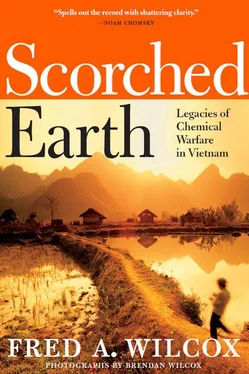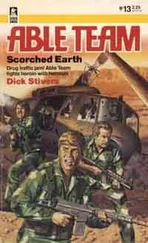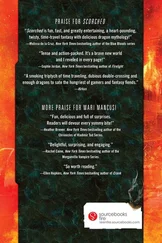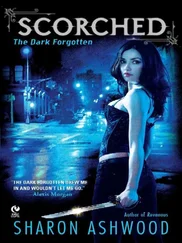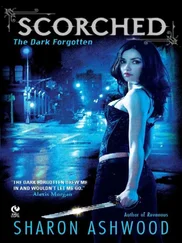—Gerson Smoger, J.D, PhD
JUNE 2007, MANHATTAN FEDERAL COURT
An attorney representing Dow Chemical Company is speaking before a panel of three appellate court judges, trying to convince them that the Vietnamese class action lawsuit charging Dow and three dozen wartime manufacturers of Agent Orange with war crimes is without merit, and that the court should dismiss plaintiffs’ appeal post haste.
Among spectators in the packed courtroom is fifty-one-year old Nguyen Van Guy, who is suffering from terminal cancer, and has two children with birth defects. Speaking outside of the courtroom, he tells spectators and the press: “I am here as living evidence to tell the people in the court that dioxin really has a negative impact on human beings as well as the environment.”
Mr. Guy has come to America to seek justice.
“The chemical companies,” he says, “must be forced to pay compensation to me and my children.”
Soon after he returns to Vietnam, Mr. Nguyen Van Guy will die from his wartime exposure to Agent Orange.
Nguyen Thi Hong is also in the courtroom. Exposed to Agent Orange during the war, and afterward while living near Bien Hoa, a dioxin “hot spot,” Ms. Hong suffers from multiple cancers, liver problems, and other illnesses. She is sixty years old. One month after returning home to Vietnam, she too dies.
Vo Thanh Hai did not participate in the war, but soon after the fighting ended he moved his family to Nam Dong province, where they helped replant trees in defoliated areas.
“My mission,” says Mr. Hai, “was to rebuild the country after so many years of war. That is why my family did not hesitate to move in a region we knew was a hot spot for Agent Orange.” 1
These plaintiffs are aware that they may not live to see the wartime manufacturers of Agent Orange accept responsibility for their actions. Nevertheless, they are here to represent impoverished Vietnamese victims of Agent Orange, their children, and all of those who have died and who will die in Vietnam and other parts of the world from exposure to dioxin.
Court adjourns for lunch and a crowd gathers in Foley Square for an impromptu rally. At one end of the plaza, about fifty angry demonstrators wave the Republic of South Vietnam flag—three red stripes over a yellow background. They hold banners scrawled with anti-communist slogans, and shout at people they appear to consider traitors—including American veterans who are here to express their support for the Vietnamese people.
It isn’t clear why these demonstrators are here, or what is making them so angry. A woman approaches the demonstrators. She shouts in Vietnamese; they shout back and strike at her with a flagpole. It seems that the enraged group thinks Agent Orange is a communist conspiracy. The press ignores the enraged demonstrators, and the police take no action when a man tries to smash a pole over a woman’s head.
We return to the courtroom.
When the chemical companies’ lawyers are speaking, the judges are convivial, friendly, and prepared to laugh; when lawyers representing the Vietnamese address the court, the panel seems irritable, confrontational, and impatient. But why wouldn’t these judges be irascible? Day after day, week after week, year after year, this drama unfolds with morose predictability. If feels like a drama in which everyone—audience, actors, directors—knows the script by heart, and yet, motivated by hope that one day there will be something new, they keep on coming. Years pass, then decades. Players come and go. Now and again, someone might try to improvise, giving the drama new energy, creating the possibility of a surprising outcome. But the producers and directors of this theater adhere to an absolute and inflexible set of rules. The script cannot be revised, even when, exhausted, the audience gives up and goes home.
The three appellate judges do not ask the Vietnamese plaintiffs who’ve traveled 10,000 miles to this hearing if they’d like to address the court. They do not ask them why they might be willing to spend their last days making up stories about the effects of Agent Orange on their children, their friends and neighbors, themselves. Would the panel like to see photographs of Mr. Guy’s children, examine doctors’ reports on Ms. Hong’s illnesses, or invite Vietnam veterans in the courtroom to talk about their experiences with Agent Orange? Spectators are not allowed to suggest ways to energize this dull drama. The afternoon drones on.
At lunch, the veteran sitting next to me talked about humping through dark triple-canopy jungles screaming with life; then suddenly the ground was carpeted with dead birds and monkeys and all he could hear was the sound of frightened men hoping to survive another search and destroy mission.
“This is bullshit,” he grumbles, getting to his feet. “I was there. They”—he points to the judges—“weren’t.”
Federal marshals watch him move slowly down the aisle and out the door. The man from Dow shuffles papers, clears his throat, and speaks. “According to Sosa,” he says. The panel nods.
Spectators retrieve their cell phones and other belongings. Elevator doors open and close, and reporters talk to exhausted Vietnamese who’ve spent the entire day in the courtroom.
In Manhattan federal court, dying Vietnamese plaintiffs and their supporters stood up to the chemical companies and the US government. No one expects the court to rule in favor of the Vietnamese. Twenty years ago, the chemical companies prevailed over a team of prominent lawyers representing Vietnam veterans and their families. The stakes are higher now. If the chemical companies lose, they might have to pay billions in compensation, rather than the $180 million they agreed to award US veterans. If the chemical companies win, they will most likely declare the long-standing conflict over Agent Orange to be finally over.
On the subway later that day, the train stops every two minutes, but that’s okay because it gives me time to ponder the realm of law. Entering this world is a walk through Alice’s Wonderland, where one hears all sorts of strange, contradictory, and confusing conversation. But ordinary people, not rabbits and caterpillars, argue cases before judges in quite ordinary courtrooms. Human beings, not Cheshire cats, listen to arguments, rule on the case before them, and write legal briefs explaining why they chose to decide the case one way or the other. Still, it can be disconcerting when erudite people speak and write in a language that feels the way a stone might sound if it could talk.
It’s easy to get confused, bewildered, and even lost inside of the Realm of Law. Translating circumlocution into readable prose might help, but that would require lots of time and patience.
THE COURT: This case involves international human rights issues of great significance to the country, the plaintiffs and to others in the international field and it has got to be decided… I want to make it clear to everybody that at the end of six months, I want to have a decision by this court that can go to the Court of Appeals on all the issues that can be decided preliminarily, except the issue of whether the Agent Orange, in fact, causes the diseases and other problems alleged…. I do not want discovery on allegations of poisoning of Vietnamese land or poisoning water and so on as a fact. 2
What you assumed the speaker or writer might be saying requires new interpretations, new translations. Words thump across the room or page, stand upon their head, perform cartwheels and somersaults. It’s time for coffee, a walk with the dog, a little poetry.
After a nice break, you return to the task at hand, refreshed, prepared to unravel double negatives, murky phrasing, and sentences that move forward, only to switch back again and again, like perilous mountain roads:
Читать дальше
